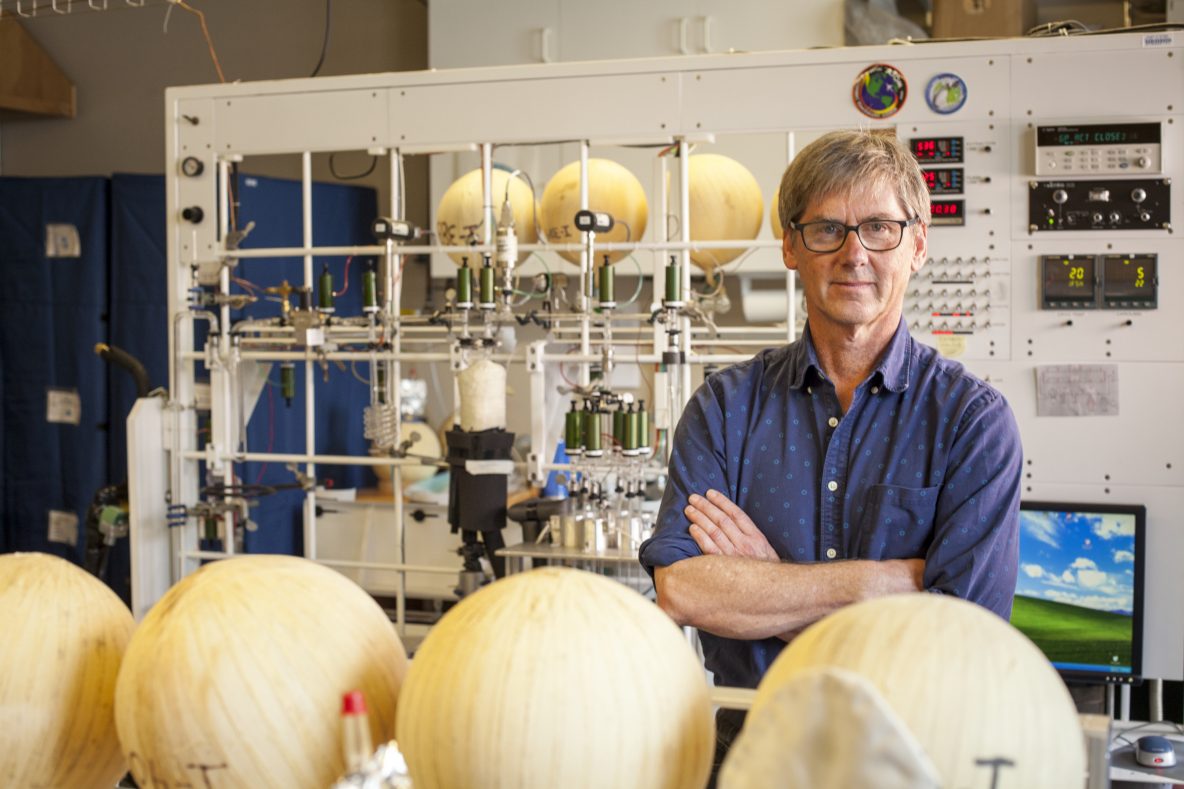July 30, 2025 opinion piece by Scripps CO2 Group Director and Keeling Curve Foundation President Ralph Keeling on what is at stake with U.S. President Donald Trump’s planned cut to Mauna Loa Observatory. Donald Trump’s war on climate science has staggering implications
New Record for Annual Increase in Keeling Curve Readings
In 2024, the yearly average level of the greenhouse gas carbon dioxide (CO2) rose faster over the prior year than ever before in the 67-year-old Keeling Curve record. When researchers took the average readings for all 12 months in 2024, the average was 3.58 parts per million (ppm) higher than for 2023’s average. That broke the record for largest jump … Read More
Why COVID Didn’t Have a Bigger Effect on CO2 Emissions
The COVID-19 pandemic caused carbon dioxide (CO2) emissions from fossil fuels to drop in 2020 by seven percent compared to 2019. This decrease in emissions slowed the increase in atmospheric CO2 compared to what would have occurred without the pandemic. It was too small and too brief, however, to stand out strongly in individual CO2 records, such as the Keeling … Read More
Statement from Scripps Oceanography, UK Met Office on Record High CO2 Buildup
Researchers Richard Betts from the UK Met Office Hadley Centre and Ralph Keeling of Scripps Institution of Oceanography, UC San Diego issued the following statement today regarding new record levels of CO2 in the atmosphere in the context of the Covid-19 pandemic. The full text of the statement with graphics is available with graphics through this link and is included … Read More
What does it take for the coronavirus (or other major economic events) to affect global carbon dioxide readings?
A downturn in global fossil fuel use has been prompted by curtailments of travel and social gatherings in response to the spread of the coronavirus. Could this downturn be reflected in atmospheric carbon dioxide readings that comprise the record known as the Keeling Curve, which is managed by scientists at Scripps Institution of Oceanography at UC San Diego? Scripps Oceanography … Read More
Carbon Dioxide Levels Hit Record Peak in May
Monthly average surpassed 414 parts per million at Mauna Loa Observatory
Rising CO2 Leading to Changes in Land Plant Photosynthesis
Suggests that plants have achieved an optimum response to rising CO2 levels in the atmosphere
Brief Reprieve from 400 PPM Era May Be Thanks to a Hurricane
A hurricane bearing down on Hawaii prompted operators to shut down CO2 monitoring equipment at Mauna Loa Observatory on the Big Island.
Why Has a Drop in Global CO2 Emissions Not Caused CO2 Levels in the Atmosphere to Stabilize?
Note: Readers have asked why there has been no stabilization in the measured levels of the greenhouse gas carbon dioxide in the atmosphere when reported emissions of CO2 have fallen. Scripps CO2 Group Director Ralph Keeling gave this response:
American Chemical Society to Honor Keeling Curve in June 12 Ceremony
Scripps Oceanography lab monitoring atmospheric CO2 named National Historic Chemical Landmark
- Page 1 of 2
- 1
- 2


